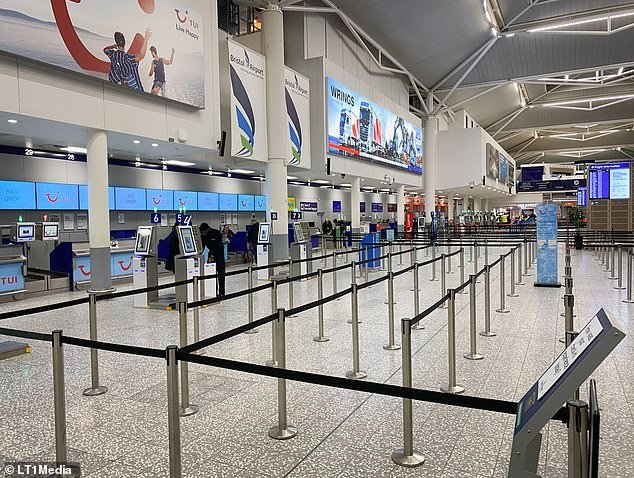The Daily Observer London Desk: Reporter- John Furner
Lockdowns during the pandemic may have had a similar impact on people’s memories to serving jail time, a study suggests.
Researchers in the UK asked 227 people to name the year in which important news events happened such as Meghan Markle joining the British royal family or the first Covid vaccines being rolled out.
But they found that the volunteers remembered events from 2021 about as poorly as those from four years earlier.
The scientists said this was similar to what happens to people in prison, who lose the ability to track time because of the absence of ‘reference events’ like birthday parties and vacations.
The study, involving 227 people in the UK, asked them to name the year in which important news events happened (Stock image of empty Bristol Airport, UK)
Dr Arash Sahraie, a psychologist at the University of Aberdeen who was a senior author on the study, said: ‘In prison, research shows that people report days dragging and years flying by, with inmates losing track of time.
‘This is similar to what we saw in people asked to recall events during lockdowns, probably because, like prisoners, they had no life events like birthday parties and holidays to use as reference points to track how time was passing.’
The study, published in the journal PLOS One, gave people four events for each of five years, between 2017 and 2021.
These included Meghan Markle joining the Royal Family, Brexit being finalised, the Covid vaccination programme beginning, and Donald Trump being banned from Facebook.
For each event, the volunteers had to choose the year they thought it happened, from between 2016 and 2022.
The more recent the news story, the better they should have remembered it — so the volunteers, surveyed last May, should have done best for 2021, which was only the previous year.
But they were out by more than a year — 1.15 years on average — in their guesses on the dates of 2021 events like the first tourist flight to space and the Evergreen container ship becoming stuck in the Suez Canal.
The poor accuracy for 2021 was similar to the problems people had remembering events which happened much longer ago, in 2017 and 2018, for which their answers were wrong by 1.21 and 1.13 years respectively.
People’s memories were not as bad for 2020, which researchers believe is because the pandemic lockdowns only started at the end of March, and because the shock of the situation gave people time ‘landmarks’ to track how the months were passing.
The study states: ‘Although drawing a comparison between the prison environment and pandemic-related restriction might be seen as an extreme case, we argue that there are similarities in the extent of social isolation in both situations.’
People had worse memories if they struggled with more anxiety and depression during the lockdowns, agreeing with statements in a questionnaire such as ‘during the pandemic I had nothing to look forward to’.
Dr Sahraie said: ‘People remember that events happened during the pandemic — they just don’t remember when.’



